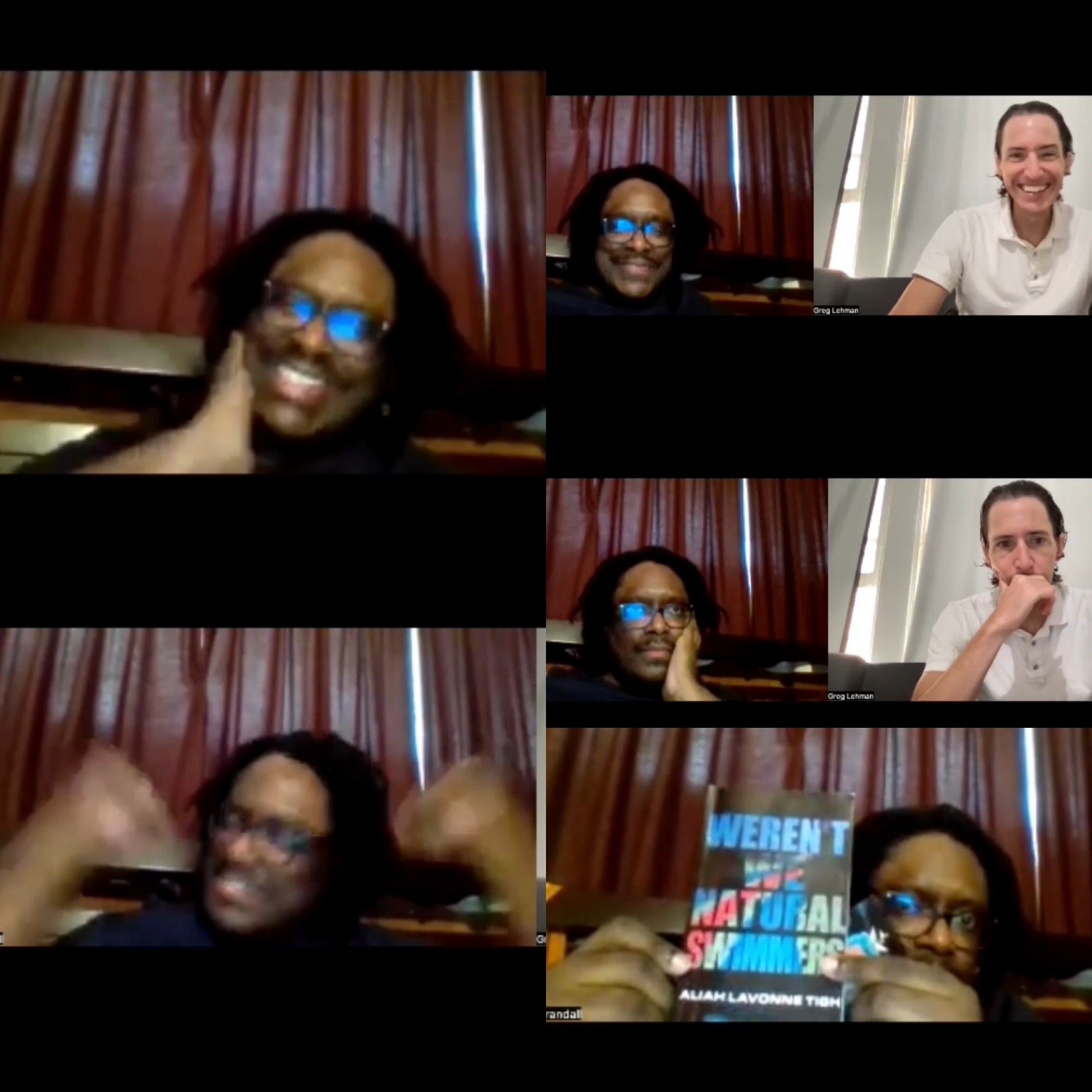Moon Beams #14 - Randall James Tyrone

The honor of being Randall James Tyrone’s first interviewer on episode #14 of “Moon Beams” is one I’m always going to hold close, and to have our lively, varied, and valuable conversation put flood lights on his first poetry collection City of Dis, a novel-in-verse sparked in multiple circles of Dante’s Inferno, published by Texas Review Press dropping in September, is a gift to share as Randall’s voice and values are exactly what we need more of in our immediate time and place.
To be clear, this conversation touches on current events as recent as the roll out of the National Guard in Washington D.C. on August 13th.
I wanted to share this episode out as quickly as possible to mark the importance of poetry as witness, especially by one of the most insightful talents I’ve been privileged to come across, much less connect with personally.
“We are in this space where I think people have to realize things are moving, and they aren’t waiting for you to understand what’s happening,” Randall said early in our conversation, speaking to a physical and political climate in free fall, and the brackets of madness set on people who seek to change it.
“Every revolutionary is considered mad,” said Randall. “The book focuses on blackness and brownness through various poems, and there is always this undercurrent of understanding that as a minority figure in this world, requesting equity is considered madness to an extent. And, of course, that’s tied to the idea of slaves wanting to be freed as a mental illness, or women being diagnosed with hysteria.
“To want something other than the framework, other than the bureaucracy, is considered insanity to the people who exist in it, who benefit from it.
“This madness was intriguing to me,” he said, later adding that madness can also be “a lack of being trusted. You don’t trust this person, so it must be madness, there can be no validity to what is happening, because you don’t believe them. While glossing over the histories and everything associated that goes along with belief, or who’s earned your belief, your trust…. what is indoctrination, and do you trust the other person’s view on what is what. And I guess quote-unquote ‘true madness’ is the loss of trust in self, to an extent. Can I trust what I’m seeing right now? Can I trust my own thoughts?”
Randall was quick to give gratitude to the many instructors and fellow poets who have equipped him for this significant step in his journey, including but not limited to Martha Serpas, Harvey Hix, Beth Loffreda, Natalie Diaz, Cornelius Eady, Bhanu Kapil, Dr. Taylor Byas, Laura Eve Engel, Aliah Lavonne Tigh, and Glen Shaheen.
Randall also applauded every virtual and in-person venue that is giving space to the evolving and very-much-living organism that is modern poetry, especially the Houston Public Poetry series that is alive and active in his area.
It feels right bookending this summary with thoughts Randall shared about how, at heart, the impact a viewer gets out of giving their attention to any work of art is, ultimately, a meeting or a miss on the time that has been given to it, offering a reward on trust, or a gap unfulfilled.
I can’t agree more when Randall said that this “payoff is what I’m arguing for. We all are very lucky, as artists, that people spend the most valuable currency they have to interact with the things we have: they spend time. Although it’s unlikely, they could have spent 5 minutes reading your poem, and then have an aneurism. That’s really extreme, and unlikely, but that is what you’re dealing with.
“This person dedicated the few moments they have to look at or experience something you made, and I think you have to reward that, in some way.”
